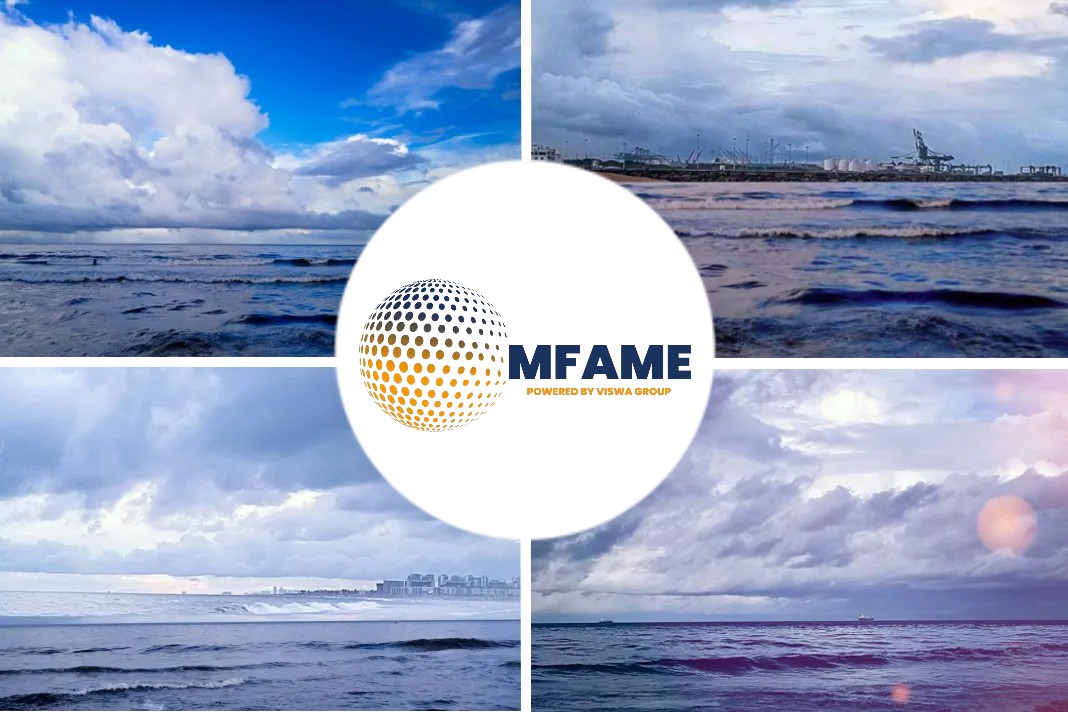
CEPSA to supply Naviera Armas Trasmediterránea ferries with 2G biofuel, states an Offshore Energy news source.
CEPSA
Spanish multinational oil and gas company CEPSA has been contracted to supply second-generation (2G) biofuel for Naviera Armas Trasmediterránea ferries.
As informed, the company will provide biofuel from the Port of Algeciras. These biofuels are produced at the San Roque Energy Park (Campo de Gibraltar, Cádiz) from agricultural waste.
The company has transformed one of its plants in the San Roque Energy Park, adapting the Isomax unit for production of second-generation biofuels via co-processing.
This is the first time in Spain that passenger ships will use this type of sustainable fuel. The renewable fuel will be supplied to the Naviera Armas Trasmediterránea ferries that connect Algeciras with Ceuta.
“We continue to promote sustainable mobility as one of the pillars of our strategic growth. With initiatives like these and the ones we are rolling out in air and rail transport, we are progressing towards our goal of becoming the leading biofuels producer in Spain and Portugal, while facilitating the decarbonization of our customers in the maritime sector,” Samir Fernández, Director of Marine Fuel Solutions at Cepsa, highlighted the importance of this milestone in the company’s energy transition strategy.
“At Naviera Armas Trasmediterránea, we are firmly committed to the requirements of the energy transition. This is defined in our carbon footprint reduction plan, certified by Lloyd’s and endorsed by the Ministry for the Ecological Transition and the Demographic Challenge. We have taken important steps in this direction. We’ve had a natural understanding with Cepsa, which is why we entrusted them with the supply of 2G biofuels that we are already using in our ships in the Strait of Gibraltar and will extend to the rest of our fleet,” Agustín Aguilera, Director of Operations and Environment at Naviera Armas Trasmediterránea, said.
Second-generation biofuels
Second-generation biofuels can be used in ships without engine modifications and have a high potential for reducing CO2 emissions compared to conventional fossil fuels. Specifically, during the entire life cycle, from production to use in ships, CO2 emissions can be reduced by up to 90% compared to conventional fossil fuels, according to the company.
This initiative will avoid over 63 tons of CO2 emissions, the equivalent of planting 750 trees, and allow Naviera Armas Trasmediterránea ferries to sail from the Port of Algeciras with up to 15% renewable diesel in their tanks.
Specifically, the European Commission’s Fit for 55 package includes the “Fuel EU Maritime” legislative initiative, which aims to reduce greenhouse gas emissions intensity in maritime transport by 2% in 2025, 6% in 2030 and 80% in 2050, compared to 2020 levels, by boosting the use of sustainable alternative fuels.
It also supports several of the 2030 Agenda’s Sustainable Development Goals: SDG 7 (Affordable and clean energy), SDG 8 (Decent work and economic growth), SDG 12 (Responsible consumption and production), and SDG 13 (Climate action).
Testing phase at its Research Center
Prior to this initiative, and through an analysis and testing phase at its Research Center, Cepsa tested the efficiency of this second-generation biofuel in its own fleet of ships.
Cepsa has a diversified portfolio of solutions to facilitate the decarbonization of maritime transport, including not just biofuels but also products such as liquefied natural gas (LNG).
Through its 2030 strategy Positive Motion, Cepsa aims to lead sustainable mobility and promote the decarbonization of maritime, air and land transport through the production of green molecules.
Cepsa and the Port of Algeciras recently participated in the Marine Environment Protection Committee (MEPC 80) of the International Maritime Organization (IMO) in London, where they presented different projects that both entities are working on to promote the decarbonization of maritime transport.
In June this year, CEPSA revealed it is partnering with Norwegian ammonia producer Yara Clean Ammonia on the development of the first green hydrogen corridor between the ports of Algeciras and Rotterdam.
The partnership comes on the back of the announcement made in October last year when CEPSA signed a memorandum of understanding (MoU) with Port of Rotterdam to establish the first green hydrogen corridor between southern and northern Europe.
Did you subscribe to our daily newsletter?
It’s Free! Click here to Subscribe!
Source: Offshore Energy
















